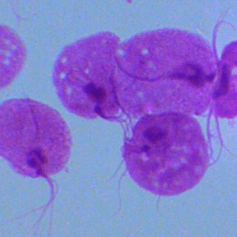Four Indian cities — Bengaluru, Mumbai, Pune, and New Delhi — are among the world’s top 10 cities with the worst traffic in the world, according to the 2019 TomTom Traffic Index undertaken by a Dutch traffic information company. According to the survey, people driving during peak hours in Bengaluru spend an average of 10 days and three hours (243 hours total) per year in traffic — most likely thumping on their steering, cursing out fellow drivers, and wanting to pull their hair out.
Increasing traffic congestion around the world has been known to accelerate environmental degradation — for example, gridlocked traffic is one of the contributors to the gradual sinking of Jakarta, Indonesia. Traffic also signals poor air quality due to the plethora of automobiles crowding roads, which further points to increased fuel consumption and depletion of natural resources. Underneath all of the obvious disadvantages of traffic, however, lurks another detriment: it wreaks absolute havoc on the mental health of those repeatedly stuck within.
Traffic, and the stress caused by having to deal with it on a daily basis, is associated with poorer well-being of urban populations. A 2004 multilevel analysis published in the journal Social Science and Medicine found populations living in areas with high traffic reported more depressive symptoms, which arose out of the unpredictability of traffic and the feeling of helplessness it invoked, researchers found. Another study evaluating the impact of urban traffic jams in Sanandaj, Iran, published in the Journal of Transport & Health, found traffic triggered stress and anxiety, reduced people’s tolerance thresholds, triggered family squabbles, and increased annoyance and boredom. Researchers also identified problems beyond individual mental health — to that of the family: traffic also caused dissatisfaction among family members and a “lack of family cohesion.”
Related on The Swaddle:
Traffic Pollution Causes 4M Cases of Asthma Every Year: Study
Traffic-induced stress is not just isolated to people’s feelings while stuck in a jam — it can often spill over into other areas of life, which exacerbates life’s other stressors. For example, research by the University of the West of England found long commutes to and from work — often as a result of urban traffic jams — reduce job and life satisfaction, which further worsens mental health.
Another analysis of Los Angeles traffic published in the Journal of Public Economics demonstrates a link between traffic and domestic violence. Researchers found extreme evening traffic — that which has the potential to double normal commute times — between 2011 and 2015 on two highways in Los Angeles increased the incidence of domestic violence at night by 6%. While not causative, researchers matched police reports of domestic violence — an emotional crime, they say — to the perpetrators’ experience with traffic on that day and found a correlation. “Life stressors act as emotional cues,” Louisiana State University economist and study author Louis-Philippe Beland told the New York Times. “What our work shows is that in extreme cases, some people’s responses to those cues can be quite large, leading to violence.”
Additionally, air and noise pollution — two phenomena someone stuck in traffic is all too familiar with — is also linked to depression and suicide, a global survey finds. Solutions to these traffic-related woes are aplenty — make workplaces more flexible with telecommuting; increase the number of bike lanes in a city; strengthen public transportation; even create self-driving cars. Regarding the universal, efficient implementation of any of these, however, the only thing to do is wait — and aren’t we all masters at that anyway?




